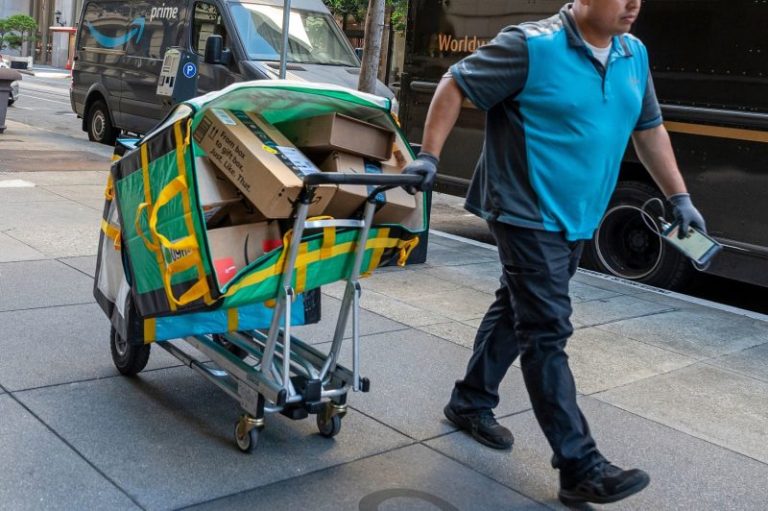Amazon Sued by D.C. AG for Allegedly Excluding Neighborhoods from Prime Delivery
The lawsuit filed by the District of Columbia Attorney General against retail giant Amazon has brought to light a concerning issue of alleged discrimination in Prime delivery services. The company stands accused of intentionally excluding certain neighborhoods from its Prime delivery service, thereby limiting access to fast and convenient shipping options for residents in those areas. This lawsuit raises important questions about equity and access to essential services in urban communities.
The complaint filed by the D.C. Attorney General highlights a pattern of behavior by Amazon that has systematically disadvantaged residents in predominantly Black neighborhoods. By restricting access to Prime delivery services in these areas, Amazon may be perpetuating existing disparities in access to goods and services. This practice not only poses a significant inconvenience to residents but also raises broader concerns about economic and racial inequalities in the distribution of essential services.
Amazon’s Prime delivery service is a popular option for many consumers seeking fast and reliable shipping for online purchases. However, the alleged exclusion of certain neighborhoods from this service undermines the company’s commitment to providing equal access to its offerings. By limiting delivery options in specific areas, Amazon may be contributing to a digital divide that disproportionately affects marginalized communities.
The lawsuit filed by the D.C. Attorney General serves as a critical reminder of the importance of ensuring equitable access to essential services for all residents, regardless of their zip code. As online shopping continues to grow in popularity, it is essential that companies like Amazon take proactive steps to address any disparities in access to their services. By excluding neighborhoods from Prime delivery, Amazon may be inadvertently perpetuating existing inequalities in urban areas.
In response to the lawsuit, Amazon has stated that it is committed to providing fast and reliable delivery services to all customers, regardless of their location. The company has emphasized its ongoing efforts to expand its delivery network and improve service levels for all customers. However, addressing the allegations of exclusion raised in the lawsuit will require a concerted effort on the part of Amazon to ensure that all neighborhoods have equal access to its Prime delivery service.
The outcome of this lawsuit will have significant implications not only for Amazon but also for other companies in the e-commerce and delivery industries. It serves as a stark reminder of the importance of equity and inclusivity in the provision of essential services, particularly in urban areas where disparities in access can have far-reaching consequences. As the case against Amazon unfolds, it is crucial for companies to reflect on their own practices and policies to ensure that they are not inadvertently contributing to inequalities in access to services.



